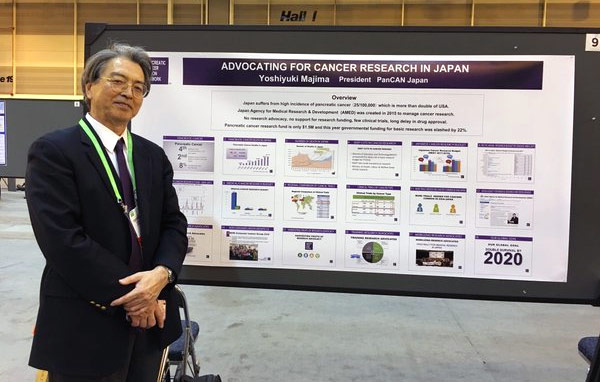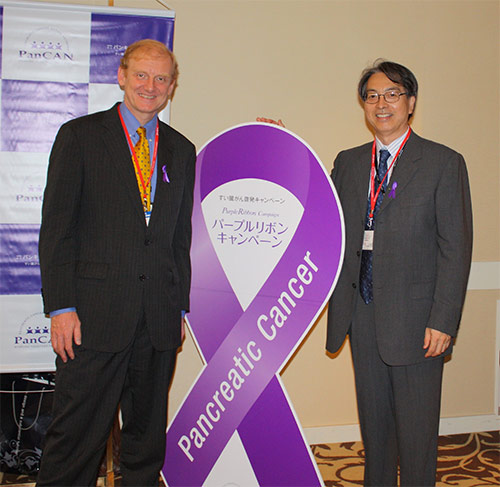Member Highlight: PanCAN Japan
PanCAN Japan, headed by President Yoshi Majima and based in Tokyo, was formed in 2006 as an autonomous extension of the Pancreatic Cancer Action Network. Like the U.S.-based Pancreatic Cancer Action Network, PanCAN Japan’s mission is to advance research, support patients and create hope. It does so by offering patient services as well as leading advocacy efforts to increase pancreatic cancer research funding in Japan.
Pancreatic cancer is the fourth leading cause of cancer-related death there.

Yoshi Majima, president of PanCAN Japan
“The reason I do what I do is because of my sister,” Majima said. “She was diagnosed with stage IV pancreatic cancer in the summer of 2004, and it was then that I learned about the five-year survival rate. She survived 18 months.”
Majima got information online about the disease and treatment options from the Pancreatic Cancer Action Network — nothing existed in Japan. He was living in California at the time, so he arranged a meeting with CEO Julie Fleshman to discuss what could be done back home to support patients. Both were hopeful that a collaboration could help accelerate a change in patient outcomes.
“A natural first step was for me to take the Pancreatic Cancer Action Network’s patient education materials and translate them into Japanese, because my professional background included translating and selling educational materials,” he said.
Once founded, PanCAN Japan got early funding through a grant from a pharmaceutical company that enabled it, in conjunction with local disease specialists, to host educational seminars for patients and caregivers throughout the country. Today, the organization works with medical institutions in different regions to disseminate patient materials.

Yoshi Majima with Ralph Hruban MD, Johns Hopkins University School of Medicine.
Because PanCAN Japan employs such a small team (just Majima and one other full-time employee; volunteers help when they can), they’re only able to take calls from patients three days a week for three hours a day. When Majima isn’t fielding patient calls, he is working to encourage the government to fund more pancreatic cancer research, bring more advocates to the cause, create a survivor program (through the Japanese version of the American Association of Cancer Research) and encourage the creation of more clinical trials. In fact, he said his proudest achievement to date was being instrumental in reducing the approval time for first-line pancreatic cancer drugs from five years to two.
PanCAN Japan is gearing up for its fourth annual fundraiser walk — PurpleStride Tokyo, which will take place on Nov. 13. About 500 people are expected. Two additional walks are also slated in the cities of Mie and Hiroshima.
In 2012, Majima himself had a pancreatic cancer scare when physicians discovered stage 0 carcinoma in situ through a CT scan. He had his pancreas removed and today is doing well.
He said he is pleased to be a member of the World Pancreatic Cancer Coalition and that he hopes to see the creation of international clinical trials driven by the WPCC. “As a global coalition, we can paint the big picture for pharma companies,” he said.
He added, “The great thing about the WPCC overall is that we members don’t need to spend time reinventing the wheel — in many cases, solutions are already here for us to take advantage of and learn from.”
